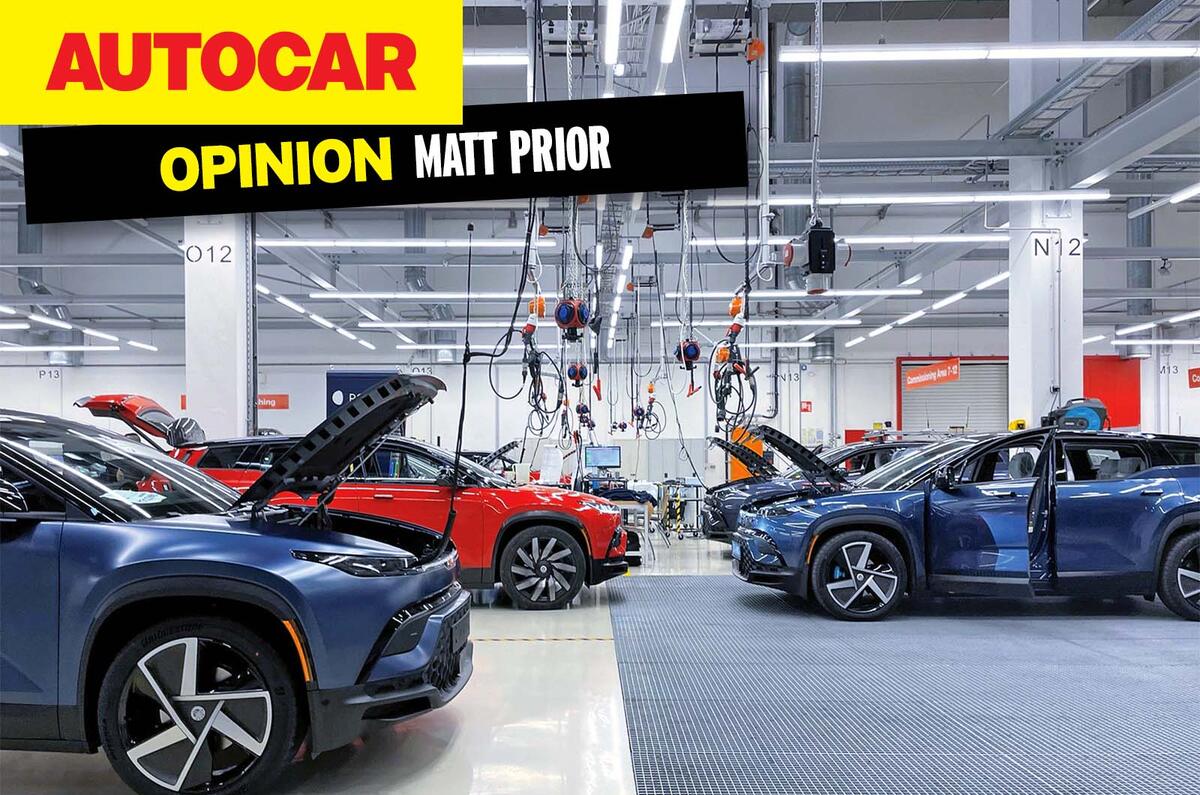With somewhat unfortunate timing from our point of view, the Fisker Ocean nipped into Autocar’s 100 Best New Cars list in April, just as its maker ran into terminal financial trouble.
A few weeks on, nice though the Ocean is, it wouldn’t make it into our most-recommended cars list any more. Due apologies to anyone who pressed the button on buying one as a result of its 98th-place finish.
American magazine MotorTrend took delivery of a long-term test Ocean – which, if you will forgive me for talking shop for one more minute, reminded me of MG Rover’s 2005 demise.
Autocar had an MG ZT on long-term test at the time, and ultimately it stayed around for… a while. Beyond remembering that it was here for several months before the receivers got in touch to enquire about its whereabouts, our recollections about how long it was here for and what we did with it are a bit hazy 19 years on.
We didn’t have the V5C, so we couldn’t have retaxed it when that ran out, and while we could have insured it and probably did, to whom would we have reported anything untoward happening to it? So long-term reports on it dried up pretty sharpish, and I suppose it occupied a 4.7-metre-long space in the office car park until someone with a clipboard came to collect it.
From thereon, it would’ve been sold into the used market and its life would’ve been relatively straightforward – at least until 2012, when, if I’ve identified the correct car in our digital archive, its MOT expired.
When MG Rover went under, so too did warranties and manufacturer support for this car, of course, but it was a mechanical device largely made from well-known components. If you pop its registration number into the Halfords website, it will still suggest the right oil filter for that engine today, and you can collect one from your local branch within three hours.
There are plenty of ZTs, Rover 75s and other MG Rover creations easing their way towards classic status, still happily supported by independent garages.
What, though, would happen to a thoroughly modern car? The way cars work has changed, regardless of how they’re powered, with software replacing hardware not just for infotainment systems but frequently driving-critical ones too.
Some Volvo EX30 owners have rejected their cars for a refund as a result of software failures, and our long-term Jeep Avenger Electric wasn’t alone in having its software brick itself, with an official repairer unable to trace the fault.
In the past, the manufacturer would in effect sell a car and hand responsibility for it over to its dealer network for repairs and maintenance. These days, maintaining software and updating it seems part of the manufacturer’s ongoing responsibility – and there’s a limit to how much it can open up access to the software, because of cybersecurity fears.
Every new car I run now will occasionally want to update its operating system, and it all comes from the mothership.
There are ways, I understand, to make software exceptionally robust. That’s why airliners so rarely fall from the sky. But this is also exceptionally expensive. So who fixes what could eventually end up being unfixable?
If two of the world’s biggest car companies – Volvo owner Geely and Jeep owner Stellantis – can’t keep a new car on the road right now, what chance does the local independent garage at the end of your road have in 10 years’ time?




Join the debate
Add your comment
Oh yes, let's keep on paying exorbitant prices for servicing obsolete, thermodynamically inefficient fossil burners. And while we're at it, let's ignore the toxic exhaust pipe pollution, the CO2 emissions and the off-the-scale environmental impact of the fossil fuel industry. This column should be published in Classic and Sportscar, not a magazine about new vehicles. Sometimes I think that if motoring journalists were around when the Ford Model T was launched, they would have been standing at the back, saying: "No thanks, I'll keep my horse and trap."
Software isn't really a long term problem. For the most part, it doesn't "deteriorate" per se. So, a car that's been running OK for 10 or 15 years, isn't going to suddenly be bricked by the software (again, for the most part, nothing is absolutely impossible).
Yes, software has bugs. But if those bugs haven't bricked the car in the first 10 or 15 years, the odds they will do in future is very slim.
Of course, the electronics do deteriorate and with all the ecus etc, yes, it's going to be very hard to keep these cars going long term.